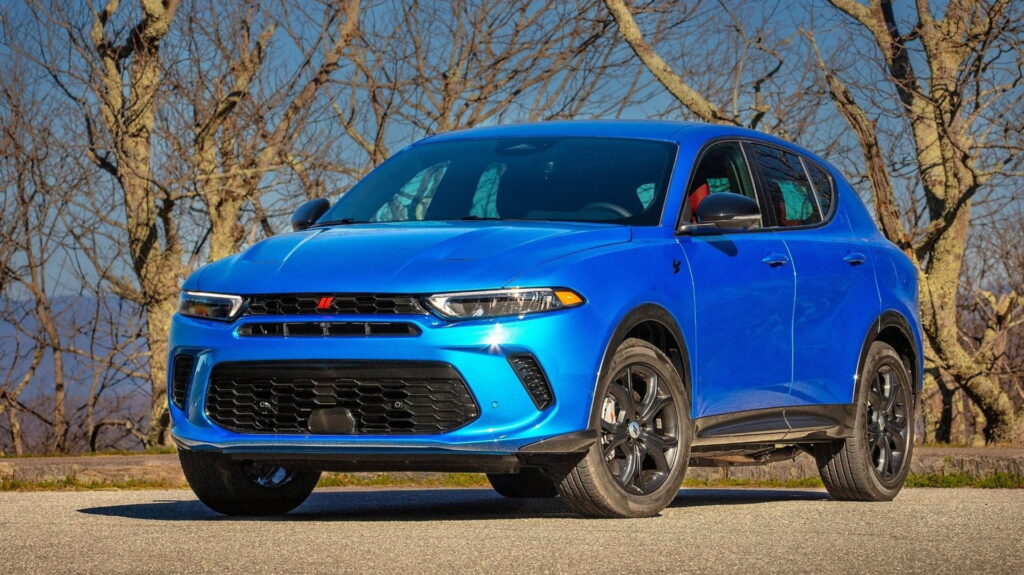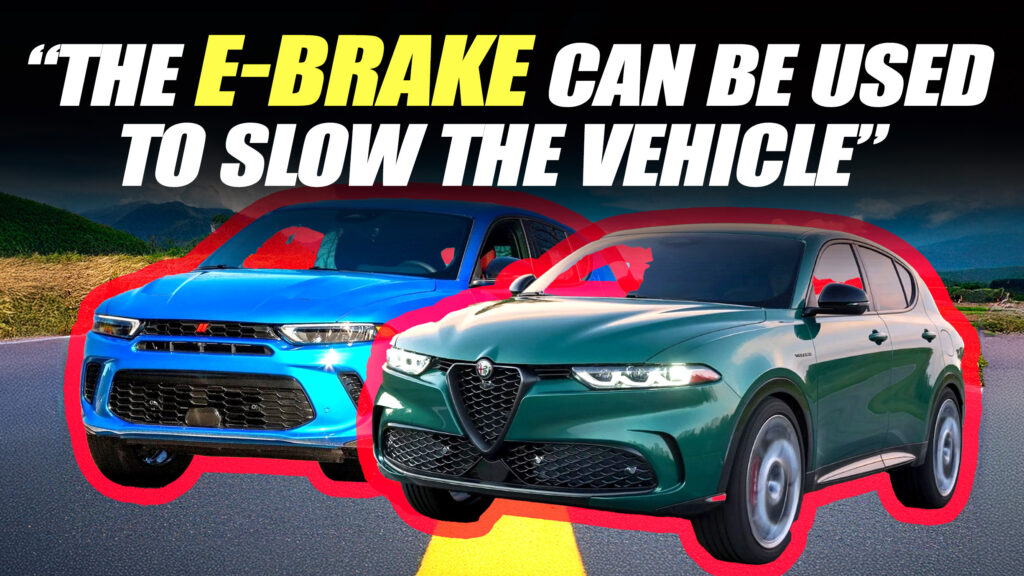- Stellantis is recalling thousands of Dodge Hornet and Alfa Romeo Tonale SUVs after receiving reports that the brake pedal could collapse in normal driving.
- A total of 21,069 of the Italian-built SUVs need to return to dealers to have their pedals reinforced with an additional nut and bolt.
- Just over 17,000 Hornets and 4,000 Tonales are affected by the fault that’s so far caused one accident but no injuries.
Stellantis is recalling its smallest North American SUVs after making the shocking discovery that the brake pedal can collapse. Around 17,000 Dodge Hornets and 4,000 units of its Alfa Romeo Tonale twin are affected by the recall which requires a total of 21,069 SUVs to return to dealerships to have their brake pedals fortified.
Technicians will reinforce the pedals with an additional nut and bolt in response to 12 reports of failures that have involved one accident, but thankfully no injuries. And it’s not like Stellantis is claiming the pedals have collapsed under trackday use. They’re giving way in normal road driving situations.
Related: Dodge Finally Made A Cool Hornet, But You Can’t Buy One
Stellantis’s advice to anyone who suffers a brake pedal failure is to reach for the “Electronic Park Brake, located on the center console” as it “can be used while driving to bring the vehicle to a controlled stop”. It also says the automatic emergency braking system will intervene automatically to slow the car down if it detects an “imminent collision” – unless, of course, the driver has deactivated it.
The affected cars were all built at the Stellantis plant in Turin between July 20, 2023, and September 26, 2024. Cars built before and after those dates are fitted with a different pedal assembly and aren’t at risk.

This isn’t the first time Stellantis has had to recall the Hornet and Tonale. The pair has been the subject of four previous safety concerns, one of them, issued in September 2023, for a loose battery cable that could lead to a fire on 4,129 vehicles. The following month the same number of cars were recalled because the pedestrian alert siren wasn’t connected, and Stellantis also issued two less serious recalls in March of this year because the SUVs were missing weight and tire info labels demanded by federal safety regulations.





